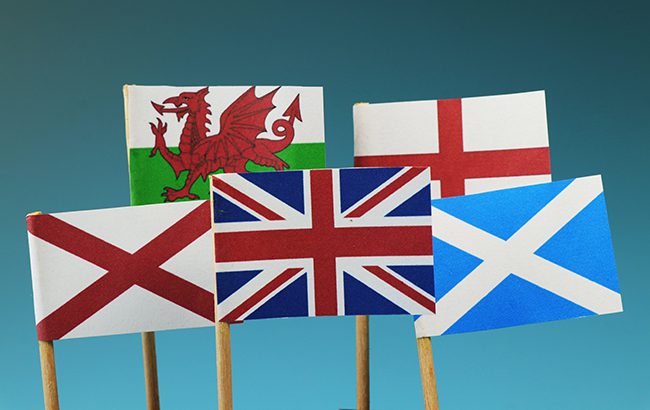UK on-trade: does England have it easy?
By Lauren BowesThe UK on-trade has struggled during the past few years, but the situation outside England often goes undiscussed.

The night-time economies in Scotland, Wales, and Northern Ireland have been facing their own complex challenges, exacerbated by the impacts of Brexit, the pandemic and confusion arising from devolution.
During the Night Time Economy Summit, held this year at the Hockley Social Club in Birmingham, industry leaders from the devolved nations shared their perspectives on the pressing issues they face. The panel was chaired by Ed Gill of The Guardian, with contributions from Mike Grieve from the Night Time Industries Association (NTIA) Scotland; Caroline Archer, NTIA Wales; and Colin Neill of Hospitality Ulster.
Rates relief
One benefit the on-trade in England has had in recent years is the small business rates relief, however this was not the case in Scotland or Northern Ireland. “There’s a thing called the Barnett formula, which is what the UK government uses as a mechanism to fund the devolved governments,” explains Grieve. “Money was passed through that to Scotland specifically for the rates relief, and the Scottish government chose not to pass it on to businesses.” Neill adds the case was the same in Northern Ireland.
Grieve had hoped that rates relief would be introduced in the latest budget, following the appointment of a new Labour government. In England and Wales, hospitality businesses will benefit from a 40% reduction of business rates; but in Scotland, the relief applies only to businesses with a rateable value under £51,000 (US$65,166).
“That really wipes out any relief for most operators in our town and city centres,” he explains. “This is fairly recent news for us, and it feels like an absolute kick in the proverbials.”
He added that he’s heard from senior Labour figures in Scotland that the government sees the rates relief as a ‘quid pro quo’ for raising employer national insurance (NI) contributions. “So they’ll take some more NI, but they’re going to give you rates relief – but in Scotland, we just get the hike in NI and we don’t get any relief.”
While Wales will benefit from the 40% rates reduction, Archer is doubtful about its ability to cure the sector. “It is helpful, it’s beneficial, but it comes along with massive increases in electricity – we’re seeing that really disproportionately in Wales. Everything else is going up. Our security bills are going up. Duty has gone up. Alcohol bills are more expensive. So that 40%, although welcome, is not really having the impact it needs.”
The view from Ireland
While Brexit has caused issues throughout the UK, Northern Ireland has had to contend with the Windsor Framework, with Neill describing it as “where products have to come a different way, with more cost to it”.
Despite the challenges, the on-trade plays a key part of life in Northern Ireland. “We are very proud to say we spend more on drinking and eating away from home than any other part of the UK, apart from central London,” he explains.
Unlike the rest of the UK, independent businesses in particular are thriving. “Our biggest pub chain is five pubs,” he laughs. While this makes for a diverse sector, it also causes problems: “We don’t have the buying power a big chain will have.”
Northern Irish hospitality is in direct competition with the Republic of Ireland, with four of its six counties touching the land border. “[Hospitality in the Republic of Ireland is] moving to 9% VAT on food and 13.5% VAT on accommodation – albeit it won’t be off their alcohol, but all that makes for different venues.”
There are also “quirks” in Northern Ireland’s licensing laws. First, the number of licensed premises in the country is capped, as part of a policy called the ‘surrender principle’. “For a new licence to be granted, another existing premises needs to surrender theirs,” says Gill. Neill says while it seems odd, if you look at the statistics, the nation has around the same number of licensed premises per head as the rest of the UK.
There’s also a requirement to “prove need” for a new licensed premises in an area, meaning there are no “bar streets”. “If you’re a multinational, you probably don’t like it, because it’s a bit of a barrier to entry. But we have an incredibly diverse industry, because we’ve lots of independent people come in. You have to prove need, which means you get a diverse spread.”
Another quirk is that licensed premises can apply to stay open until 3am, as long as there is live music after 11pm. “It gives a real advantage,” he explains. “We have lots of grassroots music, because there’s lots of opportunities – but it also keeps layering on cost upon cost.”
“We’re really proud of our independent nature, and we want to support it and encourage it to grow,” he concludes.
Collaboration across regions
While each region has its own regulatory and economic challenges, the general feeling from the panel is that collaboration is crucial.
Neill is actively involved in multiple cross-border industry groups, including UK-wide trade bodies and an all-Ireland group, to ensure best practices are shared. “There’s no such thing as a new idea. It’s out there, and I’m a great believer in stealing,” he laughs. “There are some problems that seem insurmountable, but you’ve got to work with other people and work with the industry. Bring the industry with you.”
This was echoed by Archer, who highlighted the importance of learning from other cities and countries: “There have been talks today by people from Amsterdam and Berlin about the way they put together their nighttime strategies.” She reinforced the importance of ongoing dialogue and knowledge-sharing, particularly through organisations like the NTIA. “If we don’t have meetings and events like this where we can learn from each other, we can get a little bit stuck in our lane.”
Related news
Welsh Budget ‘disastrous’ for on-trade
